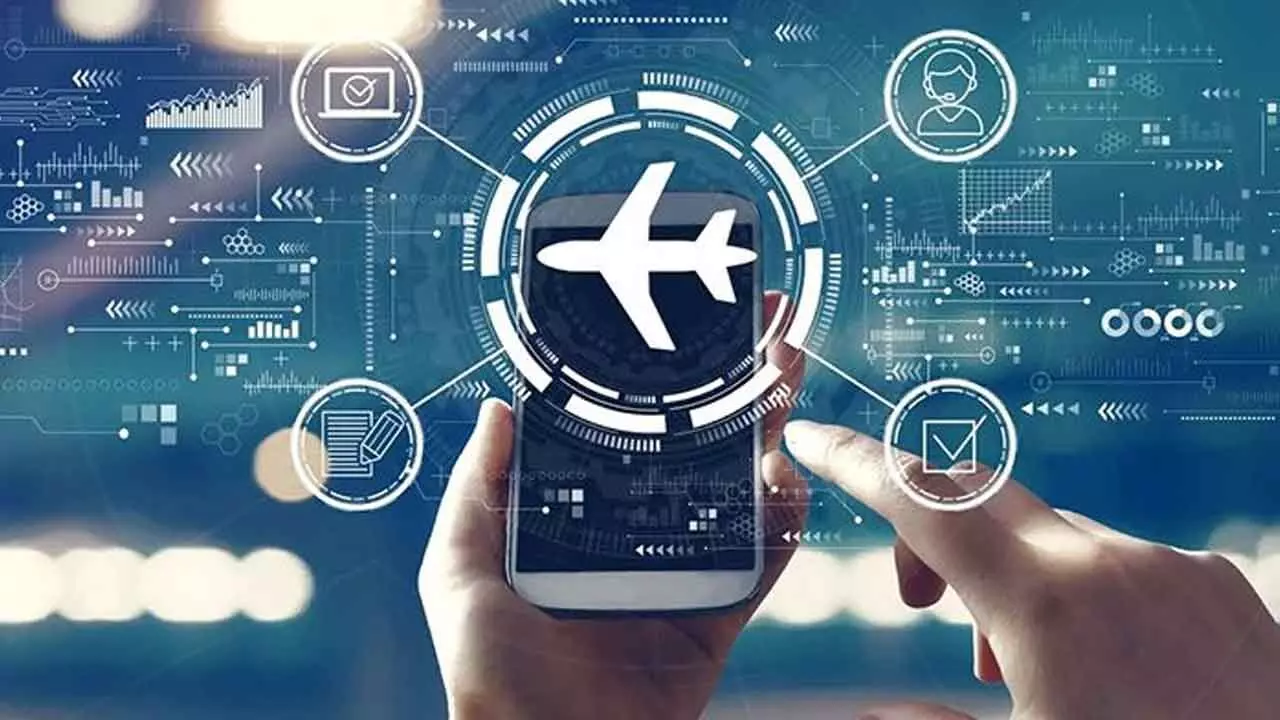AI Tools Adding Transformative Vibrancy To Tourism Sector
AI has introduced a complicated and exciting duality of disruption and possibility in travel and hospitality
AI Tools Adding Transformative Vibrancy To Tourism Sector

The integration of artificial intelligence has brought about a transformative change in the way tourism businesses operate, offering numerous benefits for all stakeholders involved — consumers, retailers, and intermediaries. AI has proven to be a game-changer
Artificial Intelligence (AI) has made a significant impact across multiple industries, including healthcare, finance, retail and entertainment. Hence, it is no surprise that travel, tourism and hospitality sectors have also embraced AI.
With the increasing number of travellers, the industry is relying on AI more than ever to enhance guest experiences. According to a recent report, the travel and hospitality AI market is expected to exceed $1.2 billion by 2026, with a growth rate of over 9.7 per cent.
The integration of artificial intelligence has brought about a transformative change in the way tourism businesses operate, offering numerous benefits for all stakeholders, including consumers, retailers and the intermediaries.
From enhancing customer experiences to streamlining operations and driving revenue growth, AI has proven to be a game-changer.
The age of AI has introduced a complicated and exciting duality of disruption and possibility in travel and hospitality. The traveller experience will become infinitely richer as travel and hospitality companies continue to mature, progress, and innovate in their digital capabilities.
Artificial intelligence (AI) has revolutionized the tourism industry. Currently, nearly every company involved in tourism uses at least one AI-powered technology, with market forecasts predicting a value of $1.2 billion by 2026. Innovations such as natural language processing (NLP), big data and deep learning also enhance the quality of travel experience.
Artificial intelligence in tourism and travel refers to the use of AI technology to improve various aspects of the tourism industry, including customer service, travel planning, pricing and marketing. It can analyze vast amounts of data to provide personalised recommendations, automate routine tasks and improve the decision-making process.
The pace of technology advancements is the top concern for business disruptions in 2024: Find out why this is the case and what travel and hospitality companies are doing to mitigate challenges caused by disruption due to rapid advancements in technology.
Around 83 per cent of executives said that they increased their budgets for AI in 2024:
Here is how they are investing in AI to improve the traveler experience.
Nearly 89 per cent said generative AI will have a meaningful impact on their business in the next three years; 67 per cent of companies are in advanced stages of cloud adoption: See how a significant increase in usage of this technology is impacting the industry’s approach to data strategies.
Hotels, travel agencies and airlines now use chatbots to improve customer services. Travellers also use these chatbots more frequently, especially so since the outbreak of Covid-19.
The crown jewel of these AI-powered chatbots is that they can offer answers to frequently asked questions through automated responses.
Advanced AI and data science algorithms are used to predict the demand for flights. These predictions rely on analytics from statistical models that explain and incorporate emerging trends from the different segments of the travel industry.
Delving deep into the concept of AI in tourism reveals that this innovative technology holds significant potential for the industry. The integration of artificial intelligence has brought about a transformative change in the way tourism businesses operate, offering numerous benefits for all stakeholders involved — consumers, retailers, and intermediaries. From enhancing customer experiences to streamlining operations and driving revenue growth, AI has proven to be a game-changer.
Customer satisfaction is vital in the tourism industry because one’s brand reputation and success depend on it.
Here are the ways AI can improve the customer experience: The use of smart recommendations affects the user experience by reducing the steps needed to complete any action. Once the AI knows a few things about you, it can make recommendations suiting your specific tastes.
Due to instability in the current market, users need to know the price of services in real-time. AI-powered inventory tools can update the cost of your services with little supervision, helping the customer to get the best available personal and corporate travel deals at all times.
Tourism and AI merge perfectly: AI optimizes every aspect of travel, and as such, improves the hospitality score.
The level of customer service impacts customers' relationships with a company tremendously, so one needs to invest in AI-enabled chatbots that use NLP algorithms to humanize automated responses.
AI simplifies baggage handling with tools like BagsID that use biometric data to track, trace, and handle operations associated with baggage handling. Together with rapid computer vision, AI can recognise and track luggage during a journey, thereby reducing the possibility of human error. AI helps brands stay relevant. Staying relevant in the social media era involves maintaining an impeccable brand identity. And that matters at the end of the day.

